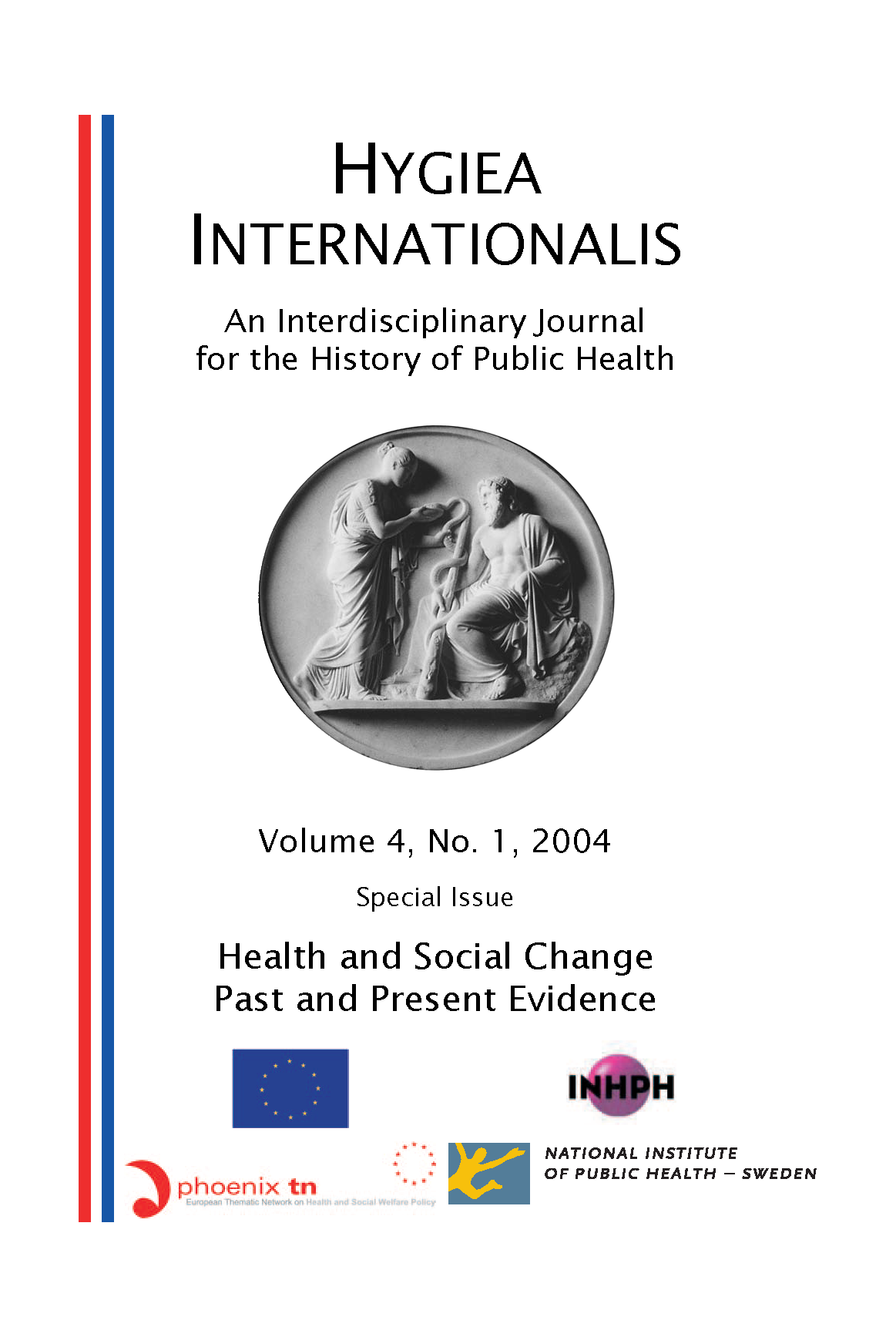Improving Public Health in France
The Local Political Mobilization in the Nineteenth Century
DOI:
https://doi.org/10.3384/hygiea.1403-8668.0441229Keywords:
France, population, mortality, life expectancy, industrialisation, public health, secularisation, professionnalisationAbstract
The paper is focused on the French improvement of life expectancy, especially during the 19th century. A precise analysis of an industrial town (Le Creusot) gives some elements about the importance of the urban penalty in mortality and also on the factors able to compensate the new bad conditions linked to the sudden increase of the population in these cities. It also emphasise the importance of the municipal level in the public health field. For the Republican, after 1871, often non active catholic elite, the social justice in the attribution of relief was linked to transparency of procedures. That led to a reflection about the objectiveness of the criterion chosen to decide who will be relieved. The reason why the nuns were dismissed and left place to municipal employees and professionnalization. Introduced to compensate the uncertainty of workers revenues, the system was rapidly linked to health perspectives and medical cares, even to preventive medicine.Downloads
Published
2004-12-10
How to Cite
Bourdelais, P. (2004). Improving Public Health in France: The Local Political Mobilization in the Nineteenth Century. Hygiea Internationalis: An Interdisciplinary Journal for the History of Public Health, 4(1), 229–253. https://doi.org/10.3384/hygiea.1403-8668.0441229
Issue
Section
Articles
License
Copyright (c) 2004 the Author(s)

This work is licensed under a Creative Commons Attribution-NonCommercial 4.0 International License.






